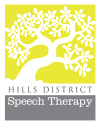
Did you know that humans swallow between 500-700 times a day, around 3 times an hour when sleeping and once per minute while awake? Swallowing is a reflex that happens from infancy all the way through to the end of our lives. However, around 1 million Australians have difficulty swallowing (a condition known as dysphagia). Despite this high prevalence, the knowledge of dysphagia, including its cause and impact, are not known by much of the population. Swallowing Awareness Day is held each year on the 16th March and is a good opportunity to reflect on a reflex that we do not think about, until it becomes a problem.
For many of us, food is a vital part of our lives. We need to eat and drink to sustain our bodies, to provide us with energy and nutrients but also to celebrate important cultural events with our friends and families. Dysphagia impacts sufferers significantly and can lead to a person becoming malnourished or isolated due to the fear of choking or coughing while eating or drinking.
Dysphagia can cause difficulties with chewing (the oral phase), swallowing (the pharyngeal phase) or with food entering the stomach (the oesophageal phase). Speech Pathologists generally focus on the Oral and Pharyngeal phases however we are learning more and more about the interaction of the Oesophageal Phase on our swallowing, particularly the effect of reflux.
How Do I Know If I Need a Swallowing Assessment?
Swallowing difficulties can start at any stage of life and for a variety of reasons. If you experience any of the following, a swallowing assessment is recommended:
- Recurrent chest infections
- These can be caused by food or fluid entering your airways and becoming infected.
- Choking incidents
- These can be caused by food or fluid blocking your airways and can be traumatic.
- Coughing when eating or drinking.
- This can be caused by food or fluid entering your airways and is the body’s natural reaction to ejecting matter out of your lungs. This can be extremely unpleasant and embarrassing, particularly when eating in public or with friends.
- Coughing can also be caused by reflux when eating or drinking.
- Modifying your diet to avoid coughing or choking.
- Have you had an incident previously and now avoid that food and all similar textures? It might be time for a swallowing assessment!
- Unplanned weight loss.
- You may not be receiving the right level of nutrition as a result of the above. You would benefit from a swallowing assessment and consultation with a Dietitian.
How We Can Help
Our primary goal at HDST is to allow you to continue eating and drinking the food and drinks that you love as safely as possible and for as long as possible. We do this by:
- Assessing the function of your cranial nerves. We do this by observing movements of the muscles of your face and throat, also known as an Oral Motor Assessment.
- Observing you while you eat and drink your own foods. This can happen at our clinic or at your home.
- Sometimes, this assessment may not give us enough information about what is happening when you eat and drink. You will be referred onto a Speech Pathologist who works in a hospital for an instrumental assessment, known as a Videofluoroscopic Swallow Study.
- Trialling strategies that may assist you in increasing the safety of your eating and drinking. This may include taking single sips of fluid, having smaller mouthfuls or keeping your chin down while swallowing.
- Changing your environment. This may include turning off the TV and eliminating distractions.
- Modifying your food and fluids. Sometimes, the above strategies may not be sufficient to allow you to keep eating and drinking safely and the texture of your food and fluids may need to be changed. We use this as a last resort at HDST and only recommend this in collaboration with you, your family and your doctor.
I Have Further Questions and Would Like Assistance
Feel free to get in touch with our clinic at any stage by visiting www.hdspeechtherapy.com.au


Recent Comments